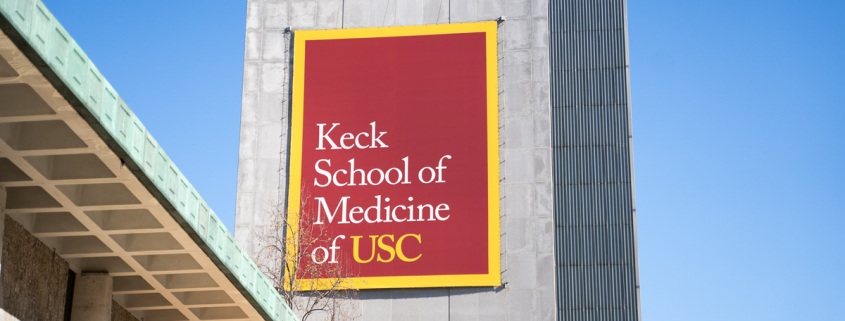Nurses protest over working conditions

Registered nurses at the USC Verdugo Hills Hospital held an “informational picket” and car caravan Wednesday calling attention to concerns about understaffing and insufficient workplace protections against the coronavirus. The demonstration was not meant as a work stoppage and did not cause any delays or inconvenience for patient care.
The workers, represented by the California Nurses Association/National Nurses United, gathered outside the Glendale hospital to protest inaction on ongoing staff concerns about patient safety and staffing. According to a CAN/NNU press release Tuesday, the nurses demand the isolation of suspected and confirmed coronavirus-positive patients, and the provision of “appropriate” personal protective equipment.
Ruby Carpo, a RN in the emergency department at USC-VHH, said she has seen the harm short staffing has had on patient care. Her unit, which deals with coronavirus-related intake and life-threatening emergencies, has “more patients than we can handle,” Carpo said, causing delays in assessment and treatment.
“Sometimes, we have patients that wait for about three to four hours in the waiting room before we can get to them because we do not have enough nurses,” said Carpo in an interview with the Daily Trojan. “Sometimes we don’t have enough rooms to take care of the patients.”
The issue is exacerbated, Carpo said, by understaffing in other departments, such as the intensive care unit, requiring the ER to provide spaces for non-ER patients. The hospital has seen a 40% RN turnover rate since 2019, which Carpo said has been driven by a shortage of nurses willing to risk their license.
“Nobody wants to work in an unsafe environment,” Carpo said. “That’s why we did the informational picketing because we want to be able to demonstrate that, to the hospital, we’re morally exhausted of being treated like we’re all dispensable.”
After contract negotiations paused abruptly at the start of the coronavirus pandemic in March 2020, nurses signed a two-year contract in an effort to “take care of patients first,” Carpo said. Now that the contract’s term has nearly elapsed, nurses look to reach a new “fair” contract that will retain and recruit experienced nurses. Negotiations began again last December, according the union.
In a statement issued Tuesday ahead of the demonstration, USC-VHH wrote that the hospital has “upheld exemplary safety measures throughout the pandemic” and bolsters employee wellness in the way of support services through its Care for the Caregiver program.
“We respect the right of our CNA members to demonstrate and recognize that they are an essential part of what makes our health care facility among the best in the country,” the statement read. “The hospital looks forward to resuming discussions with CNA and is hopeful we can successfully negotiate a new contract.”
During Wednesday’s demonstration, nurses were encouraged to use their work breaks to participate in the picket line. More than 90 nurses came out to voice their concerns, out of the approximately 270 nurses employed at USC-VHH. The turnout, Carpo said, was likely dampened by the fact that many nurses hold other jobs and were unavailable during the day. Nonetheless, Carpo estimated that 90% of her unit participated in the picketing.
The coronavirus case surge driven by the highly contagious omicron variant added to staff concerns about patient and nurse safety, Carpo said. Approximately one dozen nurses tested positive for the coronavirus in the last 30 days, and several staff across other departments, such as the central processing department, also got “wiped out.” The rapid influx of patients, combined with a decrease in staffing, led to nurses interacting with coronavirus positive patients placed in hallways without proper protection.
“We have patients in the waiting room that are known COVID positive, but then we can’t place them anywhere because, again, we’re inundated with patients inside the hospital and inside the department,” Carpo said. “We’re not properly dressed or equipped for it. We’re not wearing our gowns and other stuff that we should be wearing because they’re in the hallway.”
Wednesday’s demonstration served to call the hospital’s attention to escalating staff concerns and “moral exhaustion” amid current contract negotiations. A continued trend of nurse resignations has brought working RNs out, Carpo said, because they “just can’t ignore it anymore.”
“The bottom line is, we would not be out there if [the hospital was] being fair with a contract,” Carpo said. “This is our way of demonstrating to them that we’re united, we have one voice and that we are done with risking our licenses and we’re done risking patient safety.”

